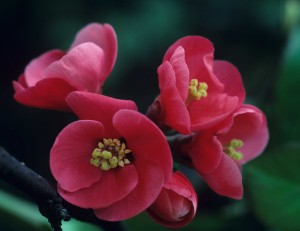The study of recurring seasonal events, such as flowering and leaf-fall in plants, or hibernation in animals, is known as phenology. At RBGE there has been a long history of research in to this, with records of flowering times being recorded since the 1850s. The current phonological research programme was established in 2002 and records a wide range of traits such as first flowering date, frequency and duration of flowering and changes in foliage, with over 10 species being recorded on a weekly basis. Once the data have been collected they can be compared to climatic data like rain fall and temperature, to look for correlations.
RBGE is also involved in the International Phenology Gardens Project, which has sites across Europe. As part of this cloned material of several tree species is grown at these sites and several aspects of their phenology is measured. Work is currently on going to establish sites at the regional gardens – Dawyck, Benmore and Logan, all of which have unique climates and will provide interesting data for comparison.
It is important to understand how plants will react to our changing climate as it has consequences for conservation, agriculture, horticulture and forestry. What we will be able to grow in the future will, without doubt, be affected by climate change.
For more information on the phenological programmes and other work looking at climate change please visit our Plants and Climate change page

